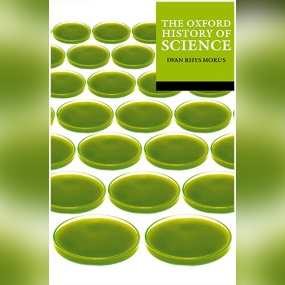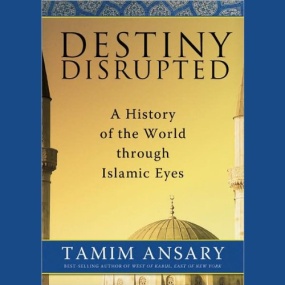
18世纪的人类以“进步”为关键词,不断投身改造自然的热潮,可也逐渐失去了对自然的敬畏。在这一时期众多探究“如何理解自然”的科学家中,有一位浮士德式的人物:他的内心簸荡着不息的求知冲动,不仅渴望周游世界,更试图洞悉整个宇宙。深受启蒙思想影响的他,坚信客观实验之必要,但也重视个人的主观感受。他将科学与想象结合在一起,以“生命之网”的整体视角重新审视自然。他,就是亚历山大·冯·洪堡。
亚历山大·冯·洪堡(Alexander von Humboldt,1769—1859),曾被普鲁士国王腓特烈·威廉四世盛赞为“大洪水后真正伟大的人物”。他深入委内瑞拉的茂密雨林,穿越漫长的安第斯山脉,攀登当时公认最高的火山——钦博拉索山;他曾与同伴惊险地逃脱鳄鱼之口,目睹野马与电鳗的残酷搏斗,在重重树影间与美洲豹狭路相逢。他将对自然的崭新理解,融入对彼时政治局势的悉心体察,既为托马斯·杰斐逊带去详尽的考察资料,还影响了西蒙·玻利瓦尔的拉丁美洲革命。洪堡对世界的广博认识不但招致了拿破仑的嫉妒,更深度影响了歌德、柯勒律治、达尔文、梭罗、海克尔等诗人与科学家。洪堡究竟如何从一位怀有远游心气的少年成长为具有世界影响力的科学家?其观察自然的全新视角受到哪些影响的形塑?由此生成的整体自然观又如何在思想史的流变中影响一代又一代的知识分子?这些问题都可以在《创造自然》中找到答案。
安德烈娅·武尔夫为写作本书重新追寻洪堡的足迹。她以生动的笔触和翔实的资料将洪堡的个人传记、旅行历险和自然观念的演变交织在一起,既揭示了他在科学史上的枢纽地位,也搭建起这位150多年前的博物学家与现代的联系。洪堡宛如一位21世纪的通才,带着远超同时代人的前瞻性视角,将敏感的心灵注入对奴隶制、环境问题与科研发展等的探讨。这位跨越科学与艺术的观察者,可以超越任何时代。
The acclaimed author of Founding Gardeners reveals the forgotten life of Alexander von Humboldt, the visionary German naturalist whose ideas changed the way we see the natural world—and in the process created modern environmentalism.
Alexander von Humboldt (1769 – 1859) was an intrepid explorer and the most famous scientist of his age. In North America, his name still graces four counties, thirteen towns, a river, parks, bays, lakes, and mountains. His restless life was packed with adventure and discovery, whether he was climbing the highest volcanoes in the world or racing through anthrax-infected Siberia or translating his research into bestselling publications that changed science and thinking. Among Humboldt’s most revolutionary ideas was a radical vision of nature, that it is a complex and interconnected global force that does not exist for the use of humankind alone.
Now Andrea Wulf brings the man and his achievements back into focus: his daring expeditions and investigation of wild environments around the world and his discoveries of similarities between climate and vegetation zones on different continents. She also discusses his prediction of human-induced climate change, his remarkable ability to fashion poetic narrative out of scientific observation, and his relationships with iconic figures such as Simón Bolívar and Thomas Jefferson. Wulf examines how Humboldt’s writings inspired other naturalists and poets such as Darwin, Wordsworth, and Goethe, and she makes the compelling case that it was Humboldt’s influence that led John Muir to his ideas of natural preservation and that shaped Thoreau’s Walden.
With this brilliantly researched and compellingly written book, Andrea Wulf shows the myriad fundamental ways in which Humboldt created our understanding of the natural world, and she champions a renewed interest in this vital and lost player in environmental history and science.
文本下载

下载信息已被隐藏,请在下方输入 验证码 查看隐藏内容
关注微信公众号,回复“验证码”,获取验证码。 在微信里搜索“力哥爱阅读”或扫码关注。
⚠️ 取关用户无法收到验证码或任何消息,无需再次关注 ⚠️






